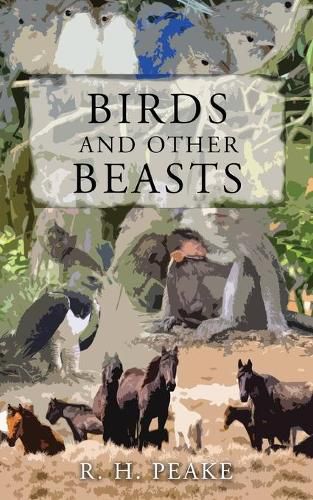Readings Newsletter
Become a Readings Member to make your shopping experience even easier.
Sign in or sign up for free!
You’re not far away from qualifying for FREE standard shipping within Australia
You’ve qualified for FREE standard shipping within Australia
The cart is loading…






This title is printed to order. This book may have been self-published. If so, we cannot guarantee the quality of the content. In the main most books will have gone through the editing process however some may not. We therefore suggest that you be aware of this before ordering this book. If in doubt check either the author or publisher’s details as we are unable to accept any returns unless they are faulty. Please contact us if you have any questions.
There is tremendous variety in form, theme, and tone in the
poems in this volume. Many of the poems may strike the
reader as corroboration of Thoreau’s view of wildness and
wilderness because Peake’s love of wild things forms his
poetic center, but this book also includes intense love poems
as well as celebrations of birds and trees and lightning bugs.
Though Peake celebrates nature, he does not view it with
sentimentality. He faces without tears a world in which one
creature preys upon another for survival, and he looks without
fear to the revelry of the grave when his form becomes food
for worms and feeds the laurel bushes growing over him.
According to critic John Lang, Peake’s poems reveal a poet
whose ear is attuned to the music of words His poems abound
in beautiful lines and images: ‘The black-necked waders cry
in their wet fields, ’ for example, and ‘skies the white-faced ibis
soars.’ Such lines embody in Fred Chappell’s phrase, ‘the eye’s
joy.’ Like Peake’s descriptions of finding a rare green kingfisher,
for readers of his poems, Delight follows discovery.
$9.00 standard shipping within Australia
FREE standard shipping within Australia for orders over $100.00
Express & International shipping calculated at checkout
This title is printed to order. This book may have been self-published. If so, we cannot guarantee the quality of the content. In the main most books will have gone through the editing process however some may not. We therefore suggest that you be aware of this before ordering this book. If in doubt check either the author or publisher’s details as we are unable to accept any returns unless they are faulty. Please contact us if you have any questions.
There is tremendous variety in form, theme, and tone in the
poems in this volume. Many of the poems may strike the
reader as corroboration of Thoreau’s view of wildness and
wilderness because Peake’s love of wild things forms his
poetic center, but this book also includes intense love poems
as well as celebrations of birds and trees and lightning bugs.
Though Peake celebrates nature, he does not view it with
sentimentality. He faces without tears a world in which one
creature preys upon another for survival, and he looks without
fear to the revelry of the grave when his form becomes food
for worms and feeds the laurel bushes growing over him.
According to critic John Lang, Peake’s poems reveal a poet
whose ear is attuned to the music of words His poems abound
in beautiful lines and images: ‘The black-necked waders cry
in their wet fields, ’ for example, and ‘skies the white-faced ibis
soars.’ Such lines embody in Fred Chappell’s phrase, ‘the eye’s
joy.’ Like Peake’s descriptions of finding a rare green kingfisher,
for readers of his poems, Delight follows discovery.